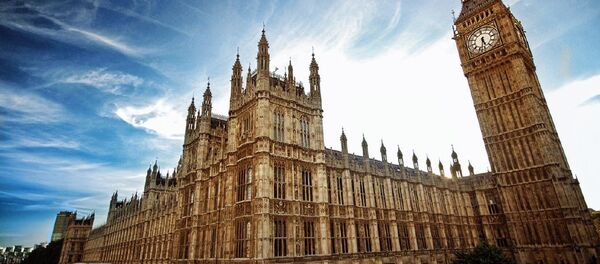Ever since the revelations by former CIA contractor Edward Snowden that Britain's spy agency GCHQ and the US National Security Agency (NSA) of mass collection of communications data, the issue of privacy has dogged governments across the globe.
The UK government was forced to introduce new legislation — the Investigatory Powers bill, known as the Snoopers' Charter — which will allow police and the security services to require communications services providers (CSPs) to retain bulk data on phone calls, emails, social media and other communications for up to a year so that they can have access to them for counterterrorism investigations.
An important warning on Govnt plans to record everything you do online from @brianpaddick #IPBill #SnoopersCharter pic.twitter.com/LELEgbhf36
— Silkie Carlo (@silkiecarlo) 5 August 2016
However, Javier Ruiz Diaz, Policy Director of the Open Rights Group says the bulk collection powers go too far and the aim should be to target only those suspected of criminal activity.
"Our basic principle is that surveillance should be based on concrete suspicion. When mass surveillance was first publicized by Snowden the agencies involved made the case that targeted internet surveillance required sieving through the data of innocent people because online they don't have a single wire to tap," Javier Ruiz Diaz told Sputnik.
"Since then the conversation has moved on to the supposed benefits of analyzing the phone calls and Internet use of the population of whole countries in order to look for patterns of suspicious behaviors and map social networks. These activities risk turning everyone into a potential suspect. To make matters worse, the Bill introduces new powers for bulk hacking, not just passive data collection. The human rights implications are enormous," he told Sputnik.
Short Scrutiny
The bill is currently half way through consideration in the UK's upper chamber, the House of Lords, which is to consider a report into its bulk collection powers by the Independent Reviewer of Terrorism Legislation, David Anderson QC, who submitted his report to the government on August 7. Anderson was only given his remit in early July, giving him barely a month to conduct a review of the proposed bulk collection powers.
Our friends @OpenRightsGroup have the latest on the UK House of Lords’ review of the #snooperscharter: https://t.co/z05xPFc1mm
— OpenMedia (@OpenMediaOrg) 4 August 2016
"Parliament has not given the Bill the scrutiny it deserves, and it is not simply a matter of time. A review of bulk should go beyond the obvious — that having more data is generally better than having less — to look at the harder questions, such as what are the alternatives and which approach gives the best value for money. We also need to understand the opportunity cost of massive data collection.
"Almost every recent atrocity has been perpetrated by someone known to security services too stretched to follow them up properly," Diaz told Sputnik.
"The Investigatory Powers Bill promised to make surveillance legislation understandable and foreseeable, a key requirement for human rights compliance, but unfortunately the Bill still has many grey areas," he added.





